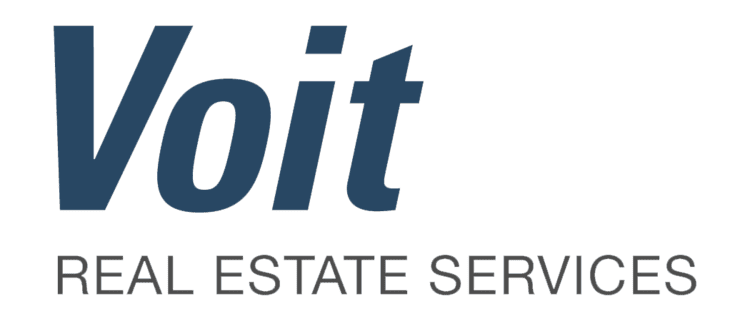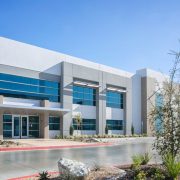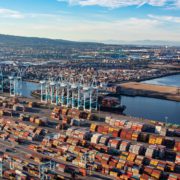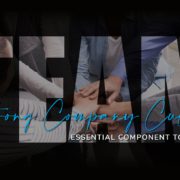A Discussion of the SIOR Spring Conference Top Agenda Items
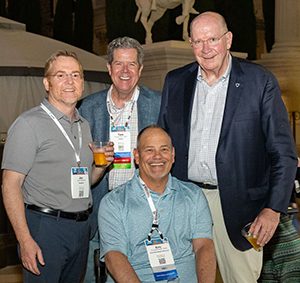 As we stated in a previous blog post, nearly two dozen of our brokers have earned the prestigious SIOR (Society of Industrial and Office Realtors) designation, a professional symbol of the highest level of knowledge, production, and ethics in the real estate industry. The SIOR Spring Conference was held recently at Caesars Palace Conference Center in Las Vegas, where Voit brokers connected with colleagues from around the globe, built and reinforced relationships, and facilitated deals. They also enhanced their knowledge of the latest industrial and office commercial real estate trends by attending expert panel discussions and listening to keynote presentations from thought leaders.
As we stated in a previous blog post, nearly two dozen of our brokers have earned the prestigious SIOR (Society of Industrial and Office Realtors) designation, a professional symbol of the highest level of knowledge, production, and ethics in the real estate industry. The SIOR Spring Conference was held recently at Caesars Palace Conference Center in Las Vegas, where Voit brokers connected with colleagues from around the globe, built and reinforced relationships, and facilitated deals. They also enhanced their knowledge of the latest industrial and office commercial real estate trends by attending expert panel discussions and listening to keynote presentations from thought leaders.
“The two recurring themes at the conference were artificial intelligence and energy consumption,” said Chris Drzyzga, SIOR, SVP in the Irvine office. “Energy-efficient strategies were woven through the entire conference from both the industrial and office sides and from the tenant and landlord perspectives. How do you optimize operating expenses when you have fixed lease escalations and increasing costs pretty much everywhere? There was a focus on getting more sustainable, clean, and efficient, and it was a thread that ran throughout the entire conference.”
Drzyzga said that the AI thread was just as prevalent, touching everything from site selection and acquisition to design and how the buildings operate, as well as the tenant experience. “It’s going to touch every area of the business, so you’d better have an AI strategy sooner rather than later if you want to compete,” he stressed. “When you think of the pace of improvement and adoption for AI, the first movers are going to benefit disproportionately because of the compounding nature of the technology.”
The Coming AI Revolution
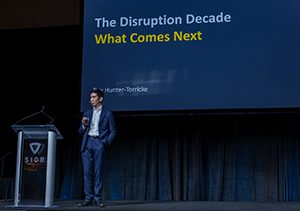 Todd Holley, SIOR, SVP in the San Diego office, and Drzyzga were most impressed by Dex Hunter-Torricke’s presentation, “The Disruption Decade: What Comes Next.” Hunter-Torricke, who previously served as the head of communications at both SpaceX and Facebook/Meta, delved into the socio-economic implications of emerging technologies. He told the gathering that we are currently in the midst of a profound technological change, led by the incorporation of Artificial Intelligence in all facets of business and life. He emphasized that while the nature of work evolves, core leadership qualities — such as foresight and adaptability — are still crucial.
Todd Holley, SIOR, SVP in the San Diego office, and Drzyzga were most impressed by Dex Hunter-Torricke’s presentation, “The Disruption Decade: What Comes Next.” Hunter-Torricke, who previously served as the head of communications at both SpaceX and Facebook/Meta, delved into the socio-economic implications of emerging technologies. He told the gathering that we are currently in the midst of a profound technological change, led by the incorporation of Artificial Intelligence in all facets of business and life. He emphasized that while the nature of work evolves, core leadership qualities — such as foresight and adaptability — are still crucial.
Three key points emerged from his talk:
1. The Constant of Change and the Need for Visionary Leadership: Hunter-Torricke contrasted his father’s era of self-taught sales innovation with the current complex, high-pressure environment faced by leaders. He used an anecdote about Elon Musk discussing the governance of a terraformed Mars to illustrate that the future demands unconventional, long-term thinking. Leaders must anticipate and prepare for questions and societal shifts that may currently seem far-fetched, as these will become realities.
2. Artificial Intelligence as the Most Profound Current Disruption: Following the transformative “knowledge revolution” (internet, smartphones), which reshaped industries, influence, and even attention spans, society is now entering an even more disruptive era driven by AI. This isn’t a niche technology; AI is becoming integral to every sector. Examples include AI handling customer service, designing buildings, accelerating scientific research, generating code in minutes that previously took months, creating prize-winning art, optimizing film performances, and enabling construction robots that outperform humans in certain tasks.
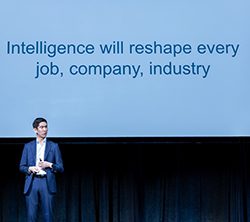 3. AI’s Dual Impact: Immense Potential and Significant Societal Challenges: The AI revolution offers incredible opportunities, such as significantly extending lifespans through medical breakthroughs (e.g., AI-assisted surgery), developing new materials for advanced batteries or hypersonic travel, potentially solving energy crises with AI-controlled nuclear fusion, and transforming urban living with autonomous vehicles and air taxis. However, this progress comes with substantial challenges, including widespread job displacement as AI surpasses human capabilities in various roles, potential geopolitical instability, and ethical dilemmas, all of which are compounded by existing pressures such as climate change. Hunter-Torricke urged honesty about intelligent machines reshaping every job and industry as the first step to navigating this future.
3. AI’s Dual Impact: Immense Potential and Significant Societal Challenges: The AI revolution offers incredible opportunities, such as significantly extending lifespans through medical breakthroughs (e.g., AI-assisted surgery), developing new materials for advanced batteries or hypersonic travel, potentially solving energy crises with AI-controlled nuclear fusion, and transforming urban living with autonomous vehicles and air taxis. However, this progress comes with substantial challenges, including widespread job displacement as AI surpasses human capabilities in various roles, potential geopolitical instability, and ethical dilemmas, all of which are compounded by existing pressures such as climate change. Hunter-Torricke urged honesty about intelligent machines reshaping every job and industry as the first step to navigating this future.
“Of all the presentations, I found his talk to be the most informative,” said Holley. “The medical advances that AI will accelerate — robotic-assisted surgery and finding cures for disease by letting AI come up with solutions at a rate that is exponentially faster than what we’re currently capable of — was eye-opening.”
“I hope people were listening to the presentation because the pace at which some of these changes are coming can’t be overlooked,” added Drzyzga. “Between now and the end of the decade, transportation, the global workforce, and the way people are earning a living [is going to change], it’s going to have profound implications on the built environment — whether you’re a broker or developer or whatever aspect of the industry you’re in. There will be some major disruptions.”
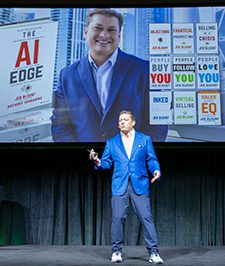 A second speaker, Jeb Blount, author of numerous books on sales strategy, including his latest, “The AI Edge,” closed out the conference with a talk on the impact of AI on the art of selling. Harnessing the power of AI enables practitioners to save time, increase sales, and redefine the art of selling by integrating artificial intelligence into the sales process and approaches.
A second speaker, Jeb Blount, author of numerous books on sales strategy, including his latest, “The AI Edge,” closed out the conference with a talk on the impact of AI on the art of selling. Harnessing the power of AI enables practitioners to save time, increase sales, and redefine the art of selling by integrating artificial intelligence into the sales process and approaches.
He emphasized that we are the first generation of salespeople to access artificial intelligence and that this moment in time is an inflection point, one that breaks from the past with “no turning back.” While AI can be an invaluable tool, it will not replace the human element. Additionally, it will not make mediocre performers into top producers but rather enhance the capabilities of those who are already top performers.
AI will become increasingly important in complex buying decisions and long-cycle sales due to its ability to manage intricacies and provide data-driven insights throughout extended purchasing journeys. Still, he assured the crowd that customers will continue to need expert advice and guidance when big decisions are on the line.
He concluded by saying that the SIORs’ mastery of soft skills, relationships, and human-to-human contact will give them a massive competitive advantage. But if they’re slow to adopt AI tools, they will be left behind by the competition.
The Tariff Effect
There was one unavoidable topic that surfaced at the conference, so SIOR scheduled a breakout session to discuss the impact of tariffs on the industrial market. In the session, SIOR industrial brokers shared their experiences with clients that resulted from the uncertainty generated by the administration’s tariff policy. Not surprisingly, those working in cities that rely heavily on port traffic were seeing a profound slowdown in deals, both leasing and sales. One broker stated that “most of my deals went into a black hole,” and many — including those in cities without port access — reported that deals had come to a standstill.
There was an equal amount of support for the tariffs, with some taking the long view, arguing that the short-term pain would be more than justified by the long-term gain that the increase in homegrown manufacturing would bring. Holley includes himself in the latter camp. “I think it’s part of the larger plan for Trump. Just look at what the market did in the past month (up 2,000 points),” said Holley. “This is a plan to level the playing field, and I think the tariff situation is going to get resolved, and the market will rebound.”
